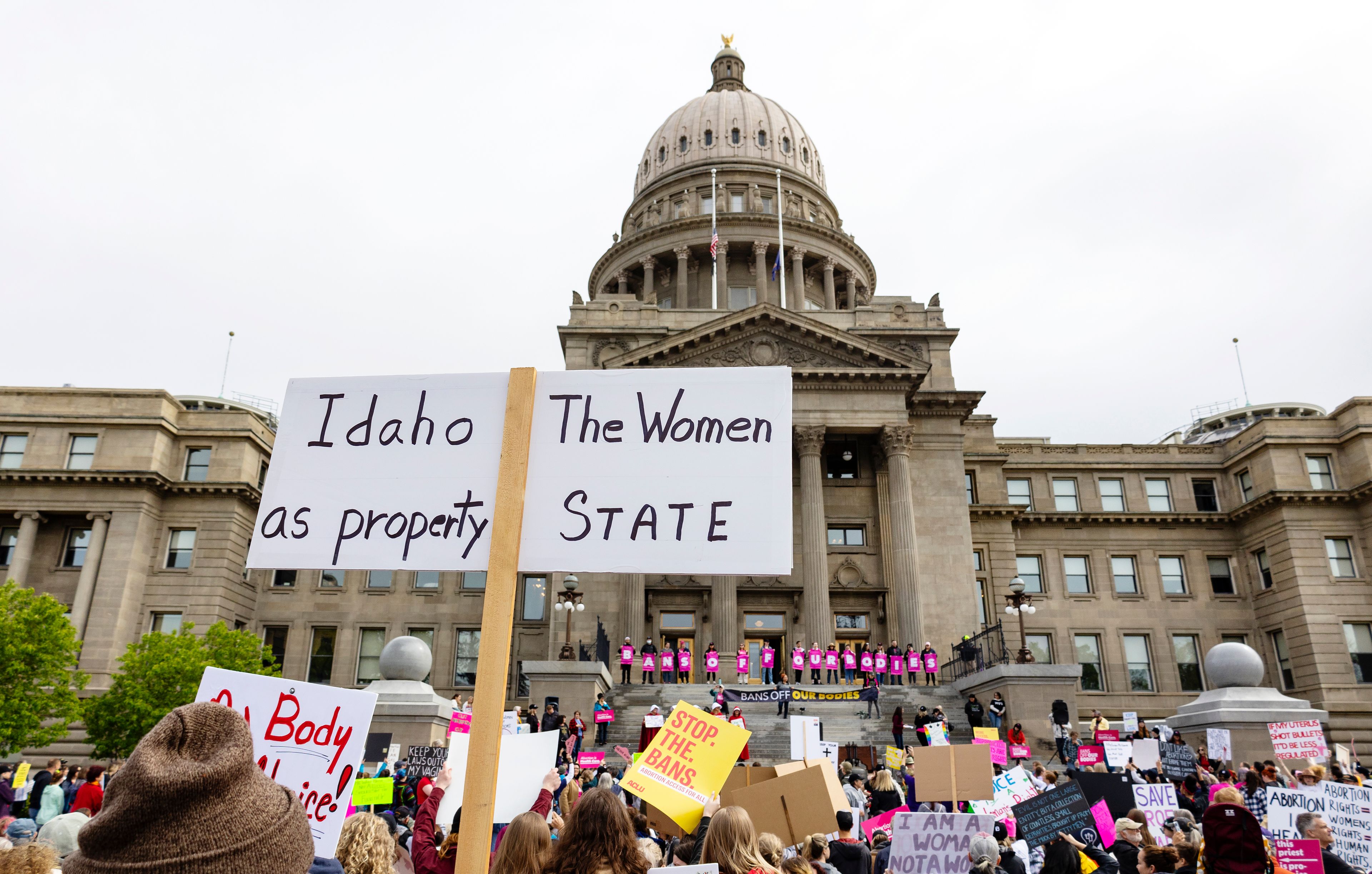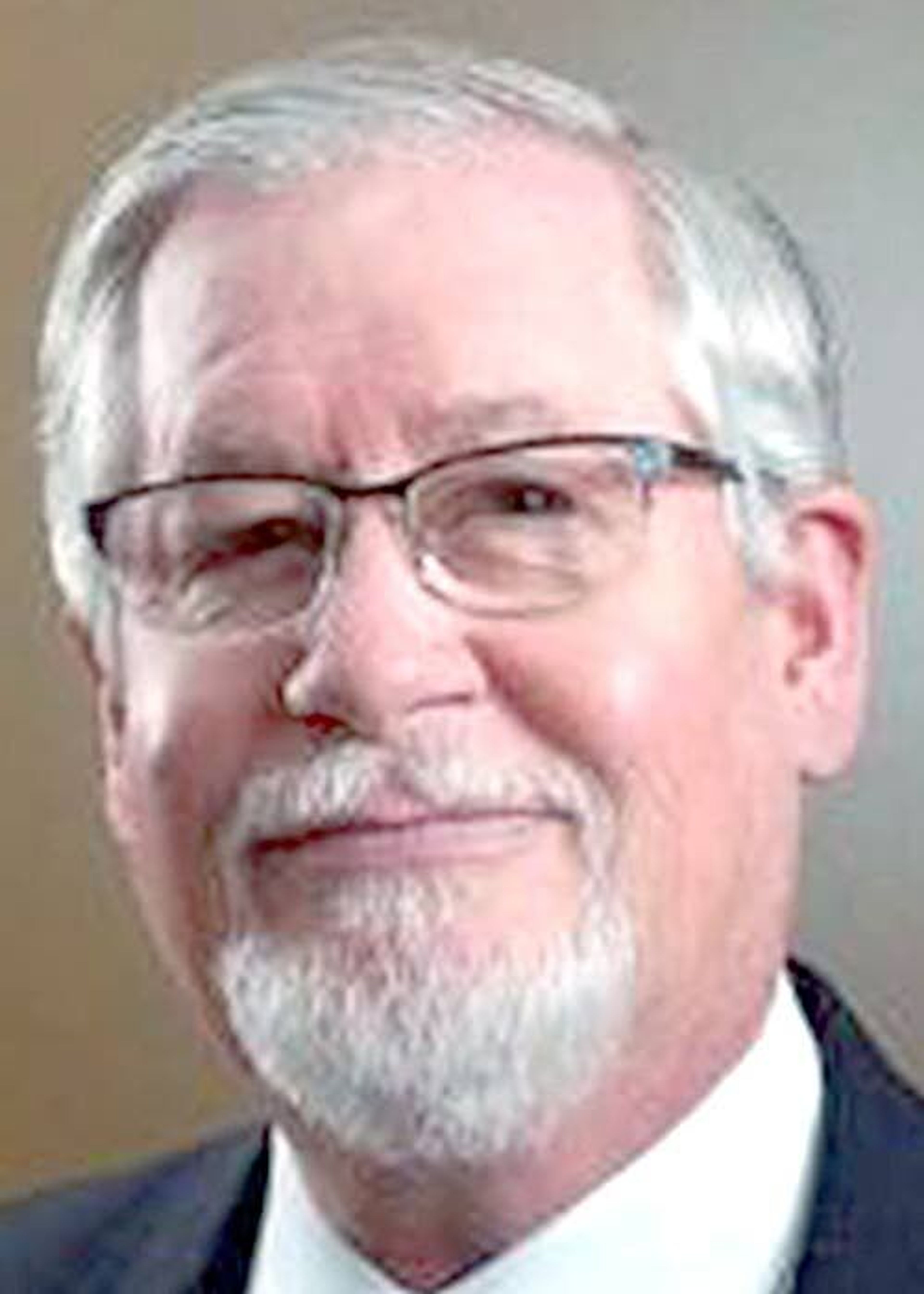Proposed abortion bill targets rogue entities
Idaho cities tolerant of abortion could lose out on tax revenue if measure presented Wednesday becomes law
BOISE — Rep. Bruce Skaug on Wednesday morning introduced legislation that would withhold sales and use tax revenues from local governments that say they won’t investigate or enforce state abortion proclamations.
It would amend the No Public Funds for Abortion Act, passed in 2021, and clarify that the bill was not meant to prevent discussions in university classrooms about abortions.
Rep. John Gannon, D-Boise, was the only committee member who voted against the proposed legislation’s introduction.
Skaug, R-Nampa, told the House State Affairs Committee that the bill would target any local government that declares itself an abortion sanctuary city or makes any similar action.
“If we allow cities to start sliding away from the laws that are felonies in the state, and say, ‘Well, we’re just not going to enforce those,’ then we’re going to end up like Portland or Seattle and the anarchy that has started to enter those cities,” Skaug said to the committee.
In July, the Boise City Council passed a resolution that would limit funding and resources to investigate abortion providers, the Idaho Press previously reported.
Asked about Boise’s decision, Skaug told the Idaho Press he doesn’t target specific entities with legislation.
In response to the proposed legislation, Boise spokesperson Maria Weeg said in an emailed statement, “It’s very early in the legislative session and we anticipate many bills being introduced and discussed. We’ll continue to monitor potential legislation that may impact our community and advocate for the health, safety and prosperity of our residents.”
The bill states that any local entity that officially refuses to enforce the abortion laws — by proclamation, resolution, ordinance or similar directive — will not be eligible to receive sales and use tax revenue, and the funds will be withheld until the entity repeals or rescinds its decision.
If the entity makes a repeal within 180 days, the state tax commission will provide all the withheld revenue, the bill states. If no action is taken within 180 days, “the withheld moneys shall be forfeited and deposited in the general fund by the state tax commission.”
The bill also amends the language to clarify that any exemptions the original legislation included don’t apply to abortions considered a felony under the state’s trigger ban; this law made nearly all abortions felonies to perform with an affirmative defense for doctors who performed abortions that were necessary to prevent the death of the mother or in cases of rape or incest documented by a police report.
The Idaho State Supreme Court early this month released a 139-page opinion upholding the state’s abortion bans. The trigger ban is being challenged in federal court by the U.S. Department of Justice for its lack of exceptions to save the health of the mother.
During Wednesday’s discussion, Gannon argued some of the legal ramifications of the state’s abortion bans are not yet settled and asked if there should be “some kind of consensus” on what the law is before adding penalties.
“I think it is creating a gray area,” Gannon told the Idaho Press. “It is taking something that has not been settled and making a felony out of it, (it) is totally inappropriate.”
The bill also adds language to a section of the act that prevents public entities from promoting abortions, to say that the word “promote” does not prevent “any classroom discussion on the subject of abortion at a school, college or university.”
The University of Idaho sent out a controversial memo in September that cautioned employees to limit discussions about abortions because of fear of retribution under the No Public Funds for Abortions Act; the university was met with strong First Amendment concerns.
Skaug said he worked with UI staff to help clarify the language.
Guido covers Idaho politics for the Lewiston Tribune, Moscow-Pullman Daily News and Idaho Press of Nampa. She may be contacted at lguido@idahopress.com and can be found on Twitter @EyeOnBoiseGuido.










